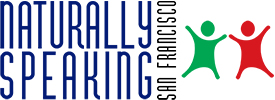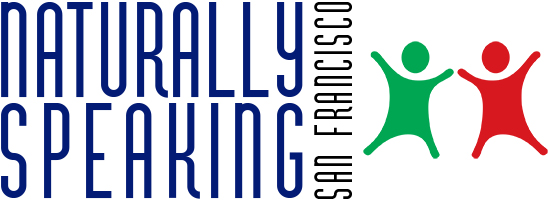Annick Tumolo MS CCC-SLP in San Francisco assesses and treats childhood apraxia of speech (CAS)
According to the American Speech and Hearing Language Association (ASHA):
Childhood apraxia of speech (CAS) is a motor speech disorder. Children with CAS have problems saying sounds, syllables, and words. This is not because of muscle weakness or paralysis. The brain has problems planning to move the body parts (e.g., lips, jaw, tongue) needed for speech. The child knows what he or she wants to say, but his/her brain has difficulty coordinating the muscle movements necessary to say those words.
Signs or Symptoms of CAS:
Not all children with CAS are the same. All of the signs and symptoms listed below may not be present in every child. It is important to have your child evaluated by a speech-language pathologist (SLP) who has knowledge of CAS to rule out other causes of speech problems. General things to look for include the following:
A Very Young Child
- Does not coo or babble as an infant
- First words are late, and they may be missing sounds
- Only a few different consonant and vowel sounds
- Problems combining sounds; may show long pauses between sounds
- Simplifies words by replacing difficult sounds with easier ones or by deleting difficult sounds (although all children do this, the child with apraxia of speech does so more often)
- May have problems eating
An Older Child
- Makes inconsistent sound errors that are not the result of immaturity
- Can understand language much better than he or she can talk
- Has difficulty imitating speech, but imitated speech is more clear than spontaneous speech
- May appear to be groping when attempting to produce sounds or to coordinate the lips, tongue, and jaw for purposeful movement
- Has more difficulty saying longer words or phrases clearly than shorter ones
- Appears to have more difficulty when he or she is anxious
- Is hard to understand, especially for an unfamiliar listener
- Sounds choppy, monotonous, or stresses the wrong syllable or word
Potential Other Problems
- Delayed language development
- Other expressive language problems like word order confusions and word recall
- Difficulties with fine motor movement/coordination
- Over sensitive (hypersensitive) or under sensitive (hyposensitive) in their mouths (e.g., may not like tooth brushing or crunchy foods, may not be able to identify an object in their mouth through touch)
- Children with CAS or other speech problems may have problems when learning to read, spell, and write
For more information go to the ASHA website http://www.asha.org/public/speech/disorders/ChildhoodApraxia/





